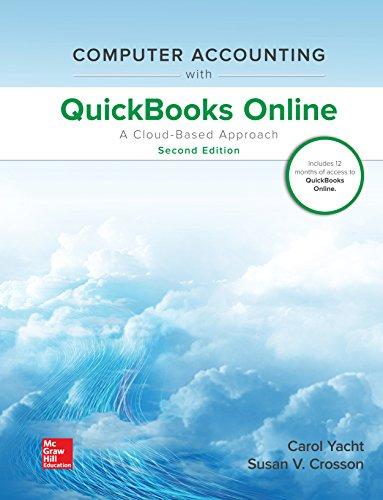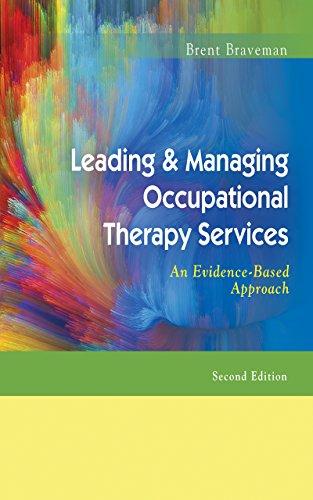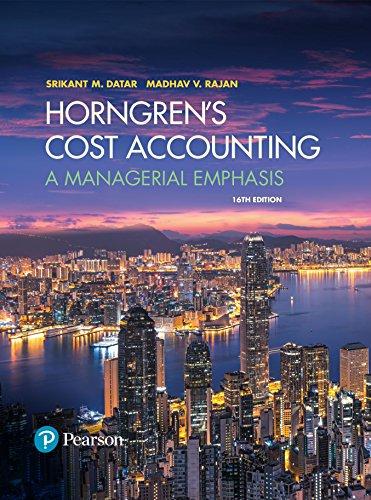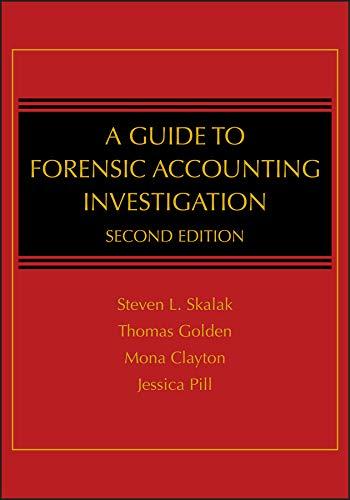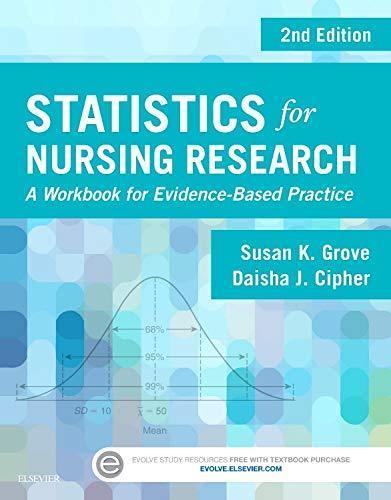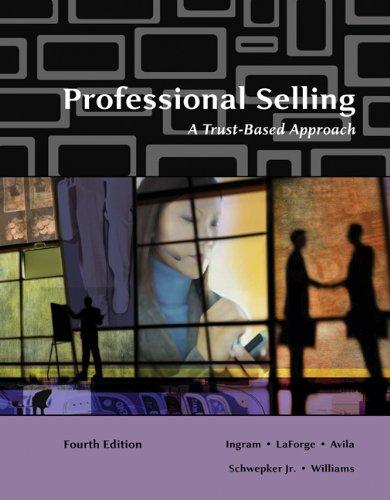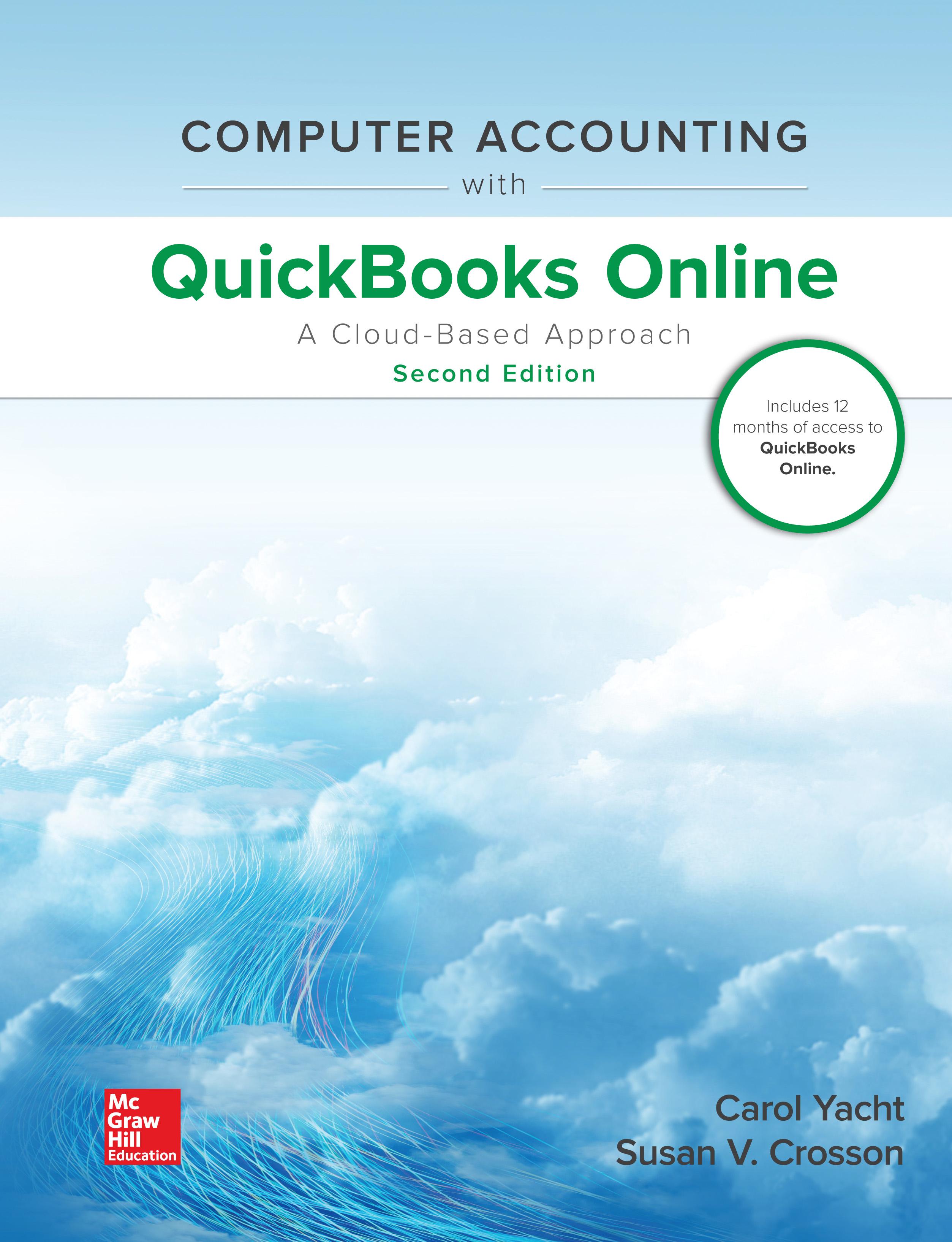Preface
Computer Accounting with QuickBooks Online: A Cloud-Based Approach, Second Edition, teaches you how to use QuickBooks Online (QBO 1) software which is accessed via an internet connection. Using the sign-on information provided in this textbook, QBO can be used for 12 months.
Being “in the cloud” means data is stored on web servers instead of your computer. Cloud software is always accessible, up-to-date and has similar features to QuickBooks desktop or other accounting software installed locally on computers. QB desktop files can be converted to QB Online.
Join over 2.2 million small business owners who use QuickBooks Online. Globally, 4.3 million customers use QuickBooks products. QuickBooks Online is the number one cloud-based accounting software for small businesses. QuickBooks Online is available from Intuit.
At Intuit, we believe we are in a unique position to use technology to tip the odds in favor of entrepreneurs. With more than two million subscribers, QuickBooks Online is the largest global platform for small businesses and the self-employed. It is their global village, the community where they come together with trusted advisors and partners to unlock their collective power. More new customers choose QuickBooks Online than QuickBooks desktop.
QBO provides an easy-to-understand interface for students to grasp accounting concepts while honing cloud computing skills.
1Words that are boldfaced and italicized are defined in Appendix B, Glossary.
McGraw-Hill Education, Computer Accounting with QuickBooks Online: A Cloud-Based Approach, 2e xvii
xviii Preface
NEW With this textbook, students use the Access Card’s license and product numbers for 12 months of use with QuickBooks Online Plus. Educators register for unlimited use. To learn more, go online to www.mhhe.com/qbo2e > Access Card.
When customers buy QBO, they pay monthly or yearly subscription fees. QuickBooks Online includes full use of the version’s features, secure storage of data, automatic upgrades and support at no extra cost. At any time, features can be added for additional fees (http://quickbooks.intuit.com/online/ > Pricing.)
As of this writing, subscription costs for customers are:
QuickBooks Online Simple Start, $10 per month
QuickBooks Online Essentials, $21 per month
QuickBooks Online Plus, $35 per month
NEW Students receive 12 months of QuickBooks Online Plus access. Chapter 2 includes sign-in information for setting up a products and services company. Educators receive unlimited use.
With the cloud, you are a click away from seeing your work. Information is available wherever you are and with whatever device you use – smart phones, tablets, desktop or laptop computers. All you need is an internet connection. Here is why businesses use QuickBooks Online for their accounting needs.
NEW Computer Accounting with QuickBooks Online: A Cloud-Based Approach, 2e, includes access to the software for 12 months.
NEW There are three exercises at the end of each chapter. Two end-of-chapter exercises focus on transactions and reports. The new third exercise is a problem-solving activity. Using the result of business processes, transactions,
McGraw-Hill Education, Computer Accounting with QuickBooks Online: A Cloud-Based Approach, 2e
Preface xix
or financial reporting, students explain why and how the result occurred. The goal of the problem-solving exercise is to improve critical thinking skills.
NEW Using Spreadsheet Compare, compare two versions of Excel files. Requires Microsoft Office 2016 Professional. (Refer to Appendix A, Troubleshooting.)
Always up-to-date: The cloud automatically updates to the latest version so you always have the most current features.
Always secure: The cloud uses the same encryption as leading financial institutions so your data is safe. For example, QBO uses the same technology used by banks and brokerage firms to transmit your private data over the internet. Intuit trusts the same system to submit millions of TurboTax returns every year.
Always backed up: The cloud keeps your data backed on Intuit’s web server. This means even if your computer has problems, your data is still there. All you need to do is start an internet browser to access your company.
Always accessible: The cloud lets you sign in from any place at any time so you can define your own schedule.
No software installation hassles: Simply sign in and get to work.
ACCESS THE CLOUD
A high-speed Internet connection is recommended, such as DSL or cable modem. You can use a slower connection, but it will take longer to process data. For more information, go online to www.mhhe.com/qbo2e > System Requirements
McGraw-Hill Education, Computer Accounting with QuickBooks Online: A Cloud-Based Approach, 2e
xx Preface
Compatibility
QuickBooks Online works on your PC, Mac, tablet, and smart phone.
System Requirements
Internet connection required (high-speed connection recommended)
Supported browsers: Google Chrome, Mozilla Firefox, Internet Explorer 10 and higher, Safari 6.1 and higher. Also accessible via Chrome or Android on Safari iOS
QuickBooks Online mobile app works with iPhone, iPad, and Android phones and tablets, Surface tablet.
TEXTBOOK FEATURES
Start your Internet browser to use the software. No desktop or hard-drive installation hassles.
Use software anywhere/anytime from devices with Internet access.
Complete the QuickBooks Online test-drive (Chapter 1).
Sign in to QuickBooks Online with a unique user ID (valid email address) and password (Chapter 2).
Set up a products and services company, chart of accounts, enter beginning balances (Chapter 3).
Journalize and post transactions and complete the accounting cycle for the fourth quarter (Chapters 4 through 6).
Journalize and post adjusting entries, print financial statements, and complete the closing process (Chapter 7).
Start the New Year, analyze source documents, and complete the accounting cycle for the first quarter. (Chapters 8 through 10).
Complete Chapter 11, Certification, Report Customization and QB Labs. Go online to www.mhhe.com/qbo2e > Student Edition > Certification Multiple-Choice Test and take the practice 100-question Certification Test.
McGraw-Hill Education, Computer Accounting with QuickBooks Online: A Cloud-Based Approach, 2e
Another random document with no related content on Scribd:
‘Janie has a headache, Captain Norton, and is lying down until dinner time. I believe she is asleep,’ she said, as she observed the roving look I cast about in search of my wife.
‘Ah, poor little woman, it will be the best thing for her,’ I replied. ‘The horses will be round directly, Miss Anstruther; but I am sorry you did not make me understand your intention of riding more plainly; it was quite by chance that I returned home so early.’
At this she turned and regarded me with serious surprise.
‘I had no intention of troubling you,’ she said quickly; ‘I can ride by myself.’
‘By yourself, and on a strange animal, Miss Anstruther! It is quite out of the question.’
‘I have ridden all sorts of animals.’
‘Perhaps; but not without an attendant. What would the regiment think to see you riding alone?’
‘I am sorry, I have mistaken the place,’ she said gravely. ‘I thought Mushin-Bunda was so very quiet that one might do anything here. I should not think of troubling you to accompany me.’
And she turned towards the house as though with the intention of giving up her ride. But I placed myself upon the threshold, and barred her entrance.
‘You have not been treating me fairly for some days past, Miss Anstruther. What have I done to offend you?’
‘Nothing,’ she answered in a low voice.
‘Then don’t add insult to your injury by refusing my escort on this occasion. You need take no more notice of me, you know, than if I were your groom; and that will not be much alteration from your usual behaviour.’
She held her head so low that I could hardly see her face; but she re-entered the verandah as I spoke, and I concluded that my terms were accepted. In another moment the horses were at the door.
‘Come,’ I said, as gaily as I could, as I held out my hand to aid her in descending the steps; and as I took hers, I felt that it was trembling. I put her on her horse. Notwithstanding her height, she is almost feather-weight; and her elastic figure sprang into the saddle, from the impetus it received from me, as though she had really been the animal to which I am so fond of comparing her. So I settled her in her seat, arranging her skirt and stirrup-leather for her, and handing her the reins, without once looking in her face; and then I mounted my own horse, and we rode out of the compound side by side. The silence that we maintained was ominous. She did not speak a word, and I could think of nothing to say, although I felt that an explanation was about to take place between us. I was glad, therefore, when we came to a long strip of green turf, and I could suggest that she should try of what mettle her animal was made; a suggestion to which she dumbly assented by breaking into a canter. As we rode along together, I glanced at her light figure, poised like a bird upon the saddle, and saw that she rode well, sitting home to her crupper, and handling her reins as though she were accustomed to them.
(N.B. I have read and heard a good deal about the want of grace in a woman’s seat on horseback, but, for my own part, I never think a lady looks so well as in that position, always provided that she understands her business and has a figure worth looking at. A handsome woman on a handsome horse is a sight for royalty, and I never know which to admire most, the mortal or the equine.)
We cantered for a mile or more, and the action of the Arab seemed very perfect. I made an observation to this effect, when, having left the running horse-keepers far behind us, we at last drew rein, and found ourselves alone. But still my remark received no answer, and I was determined to make her speak.
‘Am I intruding too much upon my privileges, Miss Anstruther, in venturing an opinion on the subject? Even a groom is sometimes permitted, you know, to pass his judgment on the new acquisitions to his mistress’s stables.’
‘Don’t, Captain Norton; oh, pray, don’t.’
The words were uttered so hurriedly that I scarcely understood them; but when I looked into her face for an explanation, I saw that she was crying. Now I cannot bear to see a woman cry. They may do anything they like with me—tease, bully, even insult me—so long as they keep their eyes dry; but Miss Anstruther’s tears were falling fast upon the bosom of her riding-habit.
I could not endure to think that she might be annoyed with me and my bantering; perhaps unhappy at having to live at MushinBunda, for it is a very dull and uninteresting place; and I said the first thing which came into my head.
‘My dear girl, what isthe matter with you?’
I suppose the question was stupid or ill-timed, or perhaps I don’t understand the ways of women, for instead of doing Miss Anstruther any good, it changed her silent tears into such a storm of grief that I was quite alarmed. I have often seen Janie cry (indeed, my little woman is rather fond of working her hydraulics on very small occasions), and I have been the unwilling witness at times to a good many tears from various members of the fair sex; but never in all my life have I seen such a tempest of passionate rain as poured from Margaret Anstruther’s eyes this evening. She sobbed so violently and with so little restraint, that I began to be alarmed for the effect of her emotion, both on her horse and herself, and begged and entreated her to be calm, when all of a sudden, to my astonishment, the storm passed as quickly as it had arisen; and, except for her heaving bosom and sobbing breath, she was herself again.
‘What must you think of me?’ she inquired, turning her liquid eyes, still swimming in tears, upon my countenance. ‘I must have seemed so rude, so ungrateful to you both.’
‘Think!’ I stammered, remembering all I have thought of her conduct during the last few days; ‘I don’t think anything, Miss Anstruther; only I am afraid you cannot be happy with us or here.’
‘Oh, it is not that!’ she exclaimed earnestly. ‘Neither place nor people can make any difference to me. Dear Janie is everything that is kind; and you—you have been very patient with me—but nothing can lift off the humiliation, the degradation, that I feel in being here at all.’
‘Degradation!’ I repeated, rather nettled at the term.
‘Yes, degradation!’ she said emphatically; ‘else why am I in this country? what is my place in India? I have an uncle here, it is true; but so have I uncles in England. Why was Colonel Anstruther chosen by my guardians as the one most fitted to offer me a home? Tell me that.’
‘He is rich, and a bachelor,’ I commenced; ‘and living alone, naturally—’
‘It is not so,’ she interrupted me; ‘and you know it, Captain Norton. It is because he lives in a country where women are scarce, and men have few opportunities of choice; where a girl may pick up a husband who might remain for ever unmarried at home; where we are looked at on arrival much as though we were articles of sale, and often purchased for motives unworthy the name of love or honour or esteem. You cannot deny it, because it is true, and I am wretched;’ and with this Lionne buried her burning face in her hands.
‘But I can deny it!’ I exclaimed; ‘for if this is the case with some girls sent out to this country, it is not with all. Look at your cousin Janie; surely you would never speak of her in that strain.’
‘Janie came out to the care of her sister, her nearest relation,’ was the low reply.
‘And you have come out to your relations, Miss Anstruther; to friends who have but one wish, to see you happy and comfortable, and who would never dream of imputing such motives to an action which—’
‘Did you not dream of it?’ she retorted quickly, as she turned her glowing glance upon me. ‘What was the question that you put to Janie the second evening of my arrival. “If she doesn’t want to get married, what is she here for?” I ought not to have heard it, perhaps, but you spoke so loudly that it was impossible to avoid doing so. And do you think I didn’t feel it?’
She spoke so decidedly, and yet so mournfully, her eyes flashed with such proud indignant fire, whilst her figure seemed bowed beneath the weight of her humiliation, that I had nothing to say for myself; and having attempted some stammering reply, which ended very abruptly, found that she was speaking again, though more to herself than me, and felt myself constrained to be silent and attend.
‘I saw it from the first day I landed,’ she went on sadly. ‘I perceived in Mrs Grant’s insinuations, and the remarks of her lady friends, that I was supposed to have been sent out to India with but one object—to get a husband; and it sickened me. But when I came here,’ she added in a lower voice, ‘I hoped it would be different; I hoped that you and Janie, being so lately married, would look on love and marriage in a holier light as something too far removed from earthly calculations to be made the subject of mere speculation or convenience.’
‘Oh, Miss Anstruther, forgive me!’ I exclaimed.
‘It is I who should have said those words, Captain Norton. You disappointed me, and I have disappointed you. You raised in me a demon of a temper, which I should have been ashamed to manifest, which I am now most heartily ashamed even to recall. And you have been very patient with me, very good and very gentlemanly. Please forgive me, in your turn.’
And she placed her hand firmly and warmly into mine.
‘You are too kind,’ I stammered, confused beyond measure at this rapid change of manner in my guest. ‘I spoke thoughtlessly; but I see that I misjudged you. Only tell me now what you wish to be done, and I will execute it to the letter.’
‘I don’t deserve that you should do anything, Captain Norton, but hate me for a rude and sulky wretch; but I am so heartily sorry to have annoyed you.’
‘Let us forget all that,’ I responded, earnestly; ‘the annoyance was mutual, and I was the most to blame. Only tell me what to do in future, Margaret I may call you Margaret, may I not, since we are cousins?—in order to make you happy, and then I shall feel that I am quite forgiven.’
‘Treat me as a human being,’ she answered, gaily, ‘and not as an animal for sale. Don’t ask your brother officers to the house on my account, nor thrust me forward for their contemplation in any way. Look on me as what I am: a creature who may stand alone all her life, and be contented so to stand; to whom marriage is but a chance in the future; so great a chance indeed, and so undesired a certainty, that she does not even care to contemplate it nearer; to whom her friends, if they will be her true and honest friends, are more valuable than a score of admirers.’
‘Whatever I have been, you shall have a true and honest friend in me henceforward, Margaret.’
‘That’s right; so let us look upon our difference as settled, and make Janie’s heart glad by the beaming faces we take back with us. And now, let me hear your true opinion of my uncle’s present to me.’
We discoursed gaily on in different topics till we reached home; when Janie was indeed made glad (as Margaret had predicted) by the cheerful conversation we maintained at the dinner-table, and the little bit of confidence I reposed in her when we found ourselves alone. She was so delighted to think I should appreciate her dear Lionne at her true value at last. Not that I told Janie every word that had passed between her cousin and myself; for, added to its being unnecessary, I am not sure that my little girl would understand Miss Anstruther’s feelings on the subject, or properly respect her pride. She would mention it again to her probably; and in her simplicity, wishing to be kind and interested, try to sift her reasons to the
bottom, and perhaps annoy where she desired to please. So I only said that our quarrel was altogether done away with, and would never be renewed; and that, as her cousin seemed to prefer a quiet life, we would inaugurate no farther dinner-parties on her account; which would suit us better, I concluded, and be more in accordance with our usual style of living. To all which my wife heartily agreed; and I feel more at charity with myself and all mankind than I have done for some time past. I shall keep my word with Margaret Anstruther; and extend no farther encouragement to the bachelors who may come lounging about my house. It is a strange taste on her part; but she must be a girl in a thousand to dislike admiration, and to look upon careless attentions as an offence against the solemnity of marriage. It isa solemn thing, when you come to think, that if you make a mistake upon the subject, you are in for it, and nothing can pull you out again. I wonder if Margaret has had an unrequited attachment; I should not be in the least surprised were I told so; it would be quite in accordance with the grave, melancholy expression of her eyes, and her dislike to society. I must try and discover.
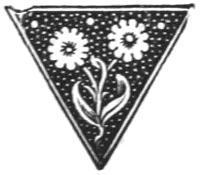

CHAPTER II.
July 20th. Is it possible that I can have let nearly a whole month slip away without writing a line in my diary? I had no idea of it till I saw the last date inscribed here; and the month itself seems to have gone so swiftly, that had it not been for this reminder, I should have imagined it was not more than a week since I recorded my experiences. I suppose it is the monotony of the place which makes the time go so fast. My poor little Janie has not been well during this month: the heat has been unusually trying, and she lies on her sofa half the day, suffering from nervous headaches, and a general disinclination to get up and do anything. In this emergency her cousin has been invaluable; she is constantly by her side, reading to her, writing her letters, or amusing her with quiet conversation; indeed, I may say we share the duty, for, of course, I like to wait on Janie; and the novels which Margaret brought out from England with her are very entertaining to listen to, and to me an entirely new field of fancy, as I have scarcely ever looked into a work of fiction in my life. I imagined novels, particularly modern ones, were such rubbish; and so I suppose they are. Yet, on a hot day, and when there is nothing else to do, it is very pleasant to sit still, fanning Janie and listening to Margaret’s mellow voice as she reads them to us. We are engaged upon the Newcomesat present. I pity that poor devil Clive, with such a little fool as Rosy for a wife, and especially when he might have had a girl like Ethel Newcome. I didn’t care a pin about the story at first, but I feel quite interested in it now, and anxious to know if he gets rid of Rosy by any means, so that he may marry the other. I think it will be very hard lines if he doesn’t. Margaret laughs at me, and says I am a bloodthirsty monster, and that Clive should
be made to abide the consequences of his folly; and so, I suppose, by rights he should.
What a genial laugh she has, and how pleasant it is to see her blush and smile! I can understand now what Janie means by calling her complexion creamy; it is so smooth and equable, not easily flushed, but at the same time not liable to become florid and irritable-looking, which is so often the case with fair skins. We have certainly had some very quiet peaceful days together. I have faithfully kept the compact I made with her to be her friend, and I think she appreciates my wish to give her pleasure. We have had no parties since she expressed a contrary desire, and I have even told Forster—who is evidently most absurdly spoony on her—that she does not favour his suit as I can see by her manner towards him— and that he really must not come to the house so often. He says, ‘Why not let him try his luck?’ but I am firm in making him understand that trial would only end in disappointment for himself. He grumbles; so do several others; but my wife’s state of health is sufficient excuse for our not entertaining at present. I told Margaret of what I had said to Forster relative to her not liking his attentions, and she blushed so crimson that I stopped in alarm to ask if I had done wrong; but she assured me to the contrary, and that she does not like the man. I have not had a good opportunity yet of probing her concerning that former attachment of which I am suspicious; but I fancy I see signs of it almost every day; also that she has somehow guessed at my intentions, for I am sure she has avoided being alone with me lately. Notwithstanding all which we are very happy, and Lionne is very different from what I expected her to be. She has not been in a temper once since we arrived at that mutual understanding.
July21st. Talk of the old gentleman, they say, and he is sure to appear. I hope I did not raise the slumbering demon in Miss Anstruther’s breast by my innocent remark of last night; but she has certainly given us a peep of him since.
I was sitting in my own room this afternoon, occupied with some official papers, when I heard a confusion of tongues in the compound, and Janie’s frightened voice, in tones of agitation, entreating me to go to her assistance. I ran, of course, to find that the cause of her alarm was a loud altercation going on between Miss Anstruther and some natives in the back verandah.
‘Oh, do go to them, Robert dear!’ Janie plaintively exclaimed; ‘Lionne is so angry, and I can’t think what for.’
I dashed upon the scene of action, and took in the circumstances at a glance. In the centre stood Lionne—a lionneindeed, looking—I could not help observing it, even whilst I blamed the exhibition— most beautiful under the influence of her rage. Her dark face glowing with passion, her arm extended, though powerless to command attention, and her lips pouring forth a torrent of generous indignant words, alike uncomprehended and unheeded by those around her. By her side stood two or three servants, who stared at the lady’s vehemence without attempting to execute her wishes; whilst before her, in the compound was a group of natives actively employed in torturing a poor pariah dog by methods too horrible to relate, and only abating their cruelty to exchange significant grins and glances with one another at Lionne’s impotent rage. But my appearance amongst them had the effect of an electric shock upon the herd.
‘What is all this about?’ I demanded angrily of my servants. ‘How dare you let such a scene go on in my compound?’
‘Oh, Robert! Robert!’ exclaimed Lionne—it is the first time in her life that she has called me by my Christian name—‘stop them; make them leave off such horrid cruelty. I did not know you were at home, or I would have sent for you before.’
The natives had already shrunk back and huddled together, whilst the unfortunate victim of their experiments still lay panting on the sand before us.
‘Oh, look at it! look at it!’ she cried excitedly; ‘it is in agony; it is dying! Oh, you wretches! you inhuman, barbarous savages!’ with an expression and emphasis which must have made even her English phrases intelligible to the creatures she addressed; ‘I should like to see every one of you served in the same way. You are not men, you are devils!’
‘Lionne,’ I said firmly, as I laid my hand on the excited girl’s arm, ‘this is no place for you. Leave me to deal with these men by myself.’
She shook off my grasp impatiently, as though disdaining my control; but I caught her eye and chained it.
‘Margaret!’
‘But, Captain Norton—’
‘Go in to Janie—you have frightened her enough already and leave me by myself. I will come to you by-and-by.’
She saw I was in earnest, and with a heightened colour turned from the verandah and re-entered the house, where, after having severely reprimanded my servants, thrashed one or two of the natives, and seen the tortured animal put out of its misery, I followed her. She was seated by Janie’s couch, her hand clasped in that of her cousin, her beautiful head drooped and lowering. I saw that she was ashamed of what had passed; and so I made no reference to it, but asked my wife in an indifferent tone on what she had decided to do this evening. She had decided on nothing—in fact, she wished to do nothing, but to be left to lie still in peace. So, after a while, I proposed a stroll in the compound to Miss Anstruther; and she rose to her feet and prepared to follow me.
I think I have already spoken of our compound, which is full of graves. These graves are very inconveniently situated for a gentleman’s pleasure-grounds; or perhaps it would be more correct to say that the gentleman’s pleasure-grounds are inconveniently situated for the graves, which stretch up to the very windows of the house, and by their inequality greatly impede the facility of a stroll. We stumbled over them, and made circuits round about them, for
some time in silence, until both that and the exercise seemed to become oppressive; and by mutual consent, as it were, we sat down together on a broad flat stone which covers one of them; and for a few moments neither of us spoke. Then I stole a glance at Margaret’s face, and saw that it was still clouded and downcast; and I felt a strange longing to see it brighten up again and smile upon me.
‘I am sorry you should have been witness to so painful and disgraceful a scene, Miss Anstruther,’ I ventured to remark.
‘I am sorry you should have been witness to so painful and disgraceful a scene, Captain Norton,’ she echoed gloomily. ‘Mine was the worst exhibition of the two: I see it now plainly. Oh, what a wretch you must think me! What an undisciplined, passionate, unwomanly creature!’ and up went her hands as shelter to her burning face.
‘Please don’t call yourself names; I can’t subscribe to them. I think you only what you are—a generous, warm-hearted girl, indignant at the sight of wrong, only inclined to be a little too hot and hasty in expressing your indignation. Never be afraid of falling in my good opinion by showing your true nature, Margaret.’
‘But my nature is so bad, Captain Norton; you cannot think how bad it is. My temper is so violent; and when it rises, I remember nothing else, except that I am angry and must show it.’
‘If you never display it in a worse cause, Margaret, than you did this afternoon, you cannot go far wrong. It was a disgraceful and disgusting act of cruelty.’
‘Oh, was it not cruel,’ she eagerly exclaimed, ‘to torture one so utterly defenceless and unarmed? I could look on at men, or dogs, or any creatures of equal power, fighting with each other, and applaud the victor; but when it comes to one against such fearful odds, one innocent creature suffering because of its innocence, I cannot bear it. Many such sights would kill me; I think that I should burst with rage.’
‘And yet in this world, Margaret, it is usually the defenceless and the innocent who suffer.’
‘We who are strong should shield them,’ she answered, hastily.
I wonder what made her link her nature with mine in that word ‘we?’ And yet I feel that I am strong—as she is. The tombstone on which we were sitting professes to cover the remains of two lovers who died within a few hours of each other. I told her the story, as it has been related to me by one of our officers, who has taken the trouble to decipher the old Dutch letters upon the stone, and asked her if she believed it possible that grief could have such an effect as to kill within so short a space of time.
‘It seems unlikely,’ she replied indifferently; ‘but natures are so various. If true, she must have loved him very devotedly.’
‘And you are the last person to believe in such affection,’ I remarked. I thought it would be a good occasion to find out if she had ever had an unfortunate attachment.
‘What makes you think so?’ she answered quickly.
‘Because you have never tried it—have you? You have never been in love yourself, Margaret?’
I spoke laughingly; but I wish I had not mentioned it. A scarlet flush mounted to her very forehead as I said the words; and when I pulled her by the hand and repeated my assertion, she burst into tears, and ran from me to the house. What a fool I was to touch on such a subject! I don’t believe, all the same, that it is true, that she has ever been in love; but I may have wounded her sensitive pride by mentioning it, and cause her to be reserved with me in future. Indeed, I am sure that she behaved more distantly towards me even during the remainder of the evening; and a little circumstance which happened just before we went to bed confirms me in this opinion.
Janie was quite brisk and lively compared to what she has been lately, and sung us several songs; but Lionne excused herself from singing, and remained in a corner with her face buried in a book.
‘Make her come, Robert dear,’ said Janie playfully. ‘Go and pull her out.’
‘Captain Norton knows better than to attempt such a rudeness,’ was the measured reply, which fell rather as a wet blanket on the other little woman’s mirth.
‘Why do you call him Captain Norton?’ she said, pouting. ‘You called him Robert this afternoon when you were in the verandah, Lionne, because I heard you. Why can’t you do so always?’
Miss Anstruther had disappeared still lower behind her book; but to my wife’s demand she made no reply.
‘Why won’t you call him Robert?’ said Janie, as she rose from the piano and took possession of her cousin’s book; ‘he always calls you Margaret.’
The face which she thus disclosed was crimson, and the dark eyes swam in a blurred mist which was half tears. So painful indeed was the expression of the whole countenance, that I turned away, and could not contemplate it.
‘Because I can’t, I really can’t,’ was the reply at last extracted.
‘And why not?’ persisted Janie.
‘It is not pleasant to me; I do not wish it,’ said Miss Anstruther, until I felt myself constrained to interfere, and desire Janie not to tease her cousin.
So she released the glowing face with an expression of impatience at her obstinacy, and Miss Anstruther made use of her liberty by effecting an immediate disappearance. This confirms me in my impression that I offended her in the compound this evening, and that it will cause a difference in our future intercourse. I am very much vexed about it: I had really begun quite to like the girl. And I cannot dismiss from my mind the tone in which she said the words, ‘We who are strong should shelter them.’ Does she imagine that I am not capable of acting a generous part? I should like to have some opportunity of showing her what stuff I am made of.
July30th.—I have been very much vexed to-day; and though the circumstance appears trifling, it threatens to lead to serious results. When we first arrived in Mushin-Bunda—now some eight months ago—I, in common with others of my regiment, heard several absurd stories concerning the houses supposed to be haunted in the cantonment and its neighbourhood—(natives always have a stock of such lies on hand, with which to feed the imagination of any one fool enough to listen to them); but of course I placed no credence in their statements, which only excited a smile from their stupidity. This well was said to be the quarters of a devil, for which cause no one would ever draw or use the water from it; and that clump of bamboos to harbour another, which, issuing in the form of a boaconstrictor, attacked those who were hardy enough to linger in the compound after dark. With regard to our own house, I heard that the spirits of the dead who lay buried beneath our windows had been seen to wander about at night in their grave-clothes; but of course I took care that such rubbish should not reach the ears of my wife; equally of course I forbade my servants chattering about it, and never gave the subject another thought. What was my surprise and vexation, therefore, when I returned home this afternoon, to find my wife supported by her cousin in a state of hysterical agitation, whilst she listened to the garbled statements of half-adozen natives, who all talked together, and interrupted one another, and did everything they could to render their relation as confused and unintelligible as possible. My ‘chokra’ or ‘dressing-boy’ was gesticulating in Hindustani; the butler was vociferating in broken English; and the cook in his native tongue of Tamil; whilst the ‘maty’ and tailor and ‘cook-boy’ tripped over each other in any words they could first lay hold of. Margaret was looking incredulous and a little scornful; Janie was all tears and flushed cheeks and wide-open eyes; and for the moment I was struck speechless with astonishment to think what could possibly have happened during my absence.
‘What is all this about?’ I exclaimed, as I advanced to the centre of the group.
The servants fell back, conscious they had no business there, and evidently somewhat doubtful of my reception of their news. But Margaret gave a sigh of relief at my appearance, and Janie flew to my arms as to an ark of safety.
‘These men have been frightening Janie out of her wits,’ said Margaret in a tone of annoyance; ‘and all I could say was insufficient to stop them.’
‘What is it, my dear?’ said I, addressing my wife. ‘What have they told you?’
‘Oh Robert, do take me away!’ she answered with a convulsive shudder. ‘I never shall be able to sleep in this house again. They say they have seen it: a dreadful thing all in white, walking about the graves, and moaning to itself, and wringing its hands. Oh, Robert dear, do let us go! It will come into the house next; I am sure it will. I shall die of fright if you don’t take me away at once.’
She clung to me like a terrified child, and as I marked her burning face and felt the feverish clasp of her hands, I could not tell what injury these idiots might not have done her by their folly.
‘What do you mean by this?’ I inquired sternly, as I turned to the group of natives.
Then they began to cringe and salaam before me, as they attempted to repeat the story which had so alarmed my wife. But I would not permit them to do so, but ordered them all out of the room, and turned my attention towards soothing Janie’s fears.
‘You must not be a child, my dear Janie,’ I said, as I replaced her on the sofa, and arranged her pillows for her. ‘These natives are always full of their stupid ghost-stories; but you know better surely than to believe such folly. There are no such things as ghosts, therefore how could they have seen one?’
‘Oh, but indeed—indeed, Robert, it is true!’ she said with painful earnestness. ‘They saw it themselves only last night, and they say it
is like a woman with long hair down her back; and when they tried to touch it, it vanished away.’
At this I could not help laughing.
‘A pack of heroes!’ I exclaimed. ‘Why, Janie, there is not one amongst them man enough to inquire into such a mystery, even if they saw it, which I don’t believe. I’ve a good mind to give them a hiding all round to make their eyesight a little clearer.’
‘But what should be their object in repeating it?’ inquired Janie fearfully.
‘If you will condescend to listen, my dear, you will always find them ready to talk. They are full to the brim with such idle tales. You should refuse to hear them, and send them about their business.’
‘Oh but, Robert, can’t we go away from this house? I never could bear those graves, and now I shall be more frightened of them than ever.’
‘Janie, I thought you were more of a woman,’ I said reproachfully. ‘Where could we go to? You know that all the houses in MushinBunda are occupied;’ to which fact poor Janie assented with a deep sigh.
‘But, at all events, you won’t go out this evening, Robert, will you?’ she continued imploringly. ‘I could not bear to stay in the house alone with Margaret and that awful thing.’
I was engaged to attend a public dinner at our mess this evening, for a couple of officers of the 18th are passing through MushinBunda on their way to England, and we wished to show them a little civility. I had been looking forward to the occasion (one sees so few strangers in this place); but I told my poor little timid wife that I would give it up and remain at home with her. However, Miss Anstruther very kindly came to my assistance, and, begging me to keep my engagement, promised not to leave Janie for a single moment till my return. Upon which, although with much reluctance, the other consented to my leaving her; and as soon as I could get
away, I went after my servants to learn what folly had induced them to fly into the presence of their mistress with such a rumour. I found them almost as frightened as herself, and, oddly enough (for you can generally catch a native tripping when you cross-examine him), perfectly firm in adhering to their first statement. Their story is, that as three of them were returning to their godowns (as they call the huts in the compound) rather late last night, they saw a tall figure dressed in white wandering about the graves, and moving its hands in a distressed manner; and that, as they cried out at the sight (for natives are terribly superstitious and cowardly), they wakened the other three, who ran out just in time to see the figure vanish round the house, and they were too much alarmed to follow up the search. In relating the story to me they dropped all mention of having touched the supposed ghost, being aware, I suppose, that I was not likely to credit such an act of bravery on their parts. I spoke to them all six, both together and individually; and it is curious that I could not make them contradict themselves in the statement that they have seen such an apparition. Of course it is all nonsense. They saw something doubtless; most likely Janie’s ‘ayah’ in her white cloth, out without leave; but as for a ghost!—folly!
I scolded them well all round for a pack of idiots, forbade their mentioning the subject again, and threatened them with the stick and stoppage of wages if they were ever the means of carrying such stories to their mistress’s ears; so I hope we have heard the last of the ghost. However, the fright has evidently done Janie no good. When I returned home from mess this evening, I found that she had had another violent attack of hysterics, and that her cousin had thought right to send for our doctor, who happened to be at his own house. He reports my wife very nervous and feverish, and orders her to be kept as quiet as possible. I would give a thousand pounds this moment, if I had them, sooner than this story had reached her ears. She is so sensitive and timid, and her health is at present so delicate, that I fear the shock may have some ill effect upon her.
July31st.—Janie better, but still feverish. Miss Anstruther watches over her like a sister. After they had both retired to bed to-night, I
sat at the window for more than a couple of hours, hoping to see something which might account for the servants’ story, but nothing was visible. The bright moon lit up the compound till it appeared almost like day, and the air was so still that I must have heard the slightest rustle; but I neither saw nor heard anything except my own breathing and the smoke from my cigar. What awful fools these niggers must be to believe in ghosts at all!
August1st.—Janie was on her sofa again to-day, and so cheerful, that I hope she has already forgotten her alarm, and that the remembrance may never be revived. But what has come to Margaret Anstruther? She looked so careworn this afternoon, so haggard and miserable, compared to her usual appearance, that, after asking her what was the matter, without obtaining any satisfactory response, I ventured to remark that I hoped the ghost-story had not had any effect on her. The start which she gave on hearing my words, and the flush which mounted to her face, would almost have made me think that inadvertently I had struck a right chord, had not the supercilious smile with which she repeated the word ‘effect’ denied the expression of her countenance.
‘I thought it could not be the case,’ I said apologetically; ‘but you are really looking so ill, Lionne. Will you not come for a ride this evening?’
No; she declined to ride or to walk; she only desired to remain by Janie’s side and minister to her comfort. So be it, then. I suppose it is natural she should prefer her cousin’s company to mine, though I am not aware that I have done anything lately to make her shrink from me as she appears to do.
August 4th.—The ghost has appeared again—or rather Janie imagines she has seen it, which is just as hurtful to her health and spirits. She had seemed so merry all to-day, and so far removed from the fanciful fears engendered by the natives’ stupid story, that after she and her cousin had retired to rest I took my cigar up to the roof of the house, as the heat has been most oppressive lately, and I longed for a breath of fresh air. Our house (like most others in
Mushin-Bunda) is built with a flat roof, surrounded by a high parapet, which roof is reached from the verandah by a flight of steps so much resembling a ladder, that it is not often I can persuade the ladies to mount it. But, for my own part, I am constantly in the habit of taking my book and pipe (not to say my glass of brandy-andwater) to this elevated retreat, and, when there, thinking on anything or nothing, as the humour may take me. To-night my thoughts were not very cheerful ones; for, without any especial reason, I felt what is technically termed ‘dummy.’
Perhaps it is the excessive heat, perhaps the continued weakness of Janie, but somehow life has not appeared quite so sunny to me lately as it used to do. I feel so weary by the time the day is at an end, and so dissatisfied with the manner in which I have spent it, and I seem to rise each morning with some undefined hope which is never realised. I suppose it is the monotonous life we lead which breeds discontented thoughts; we so seldom encounter anything to draw us out of ourselves and our own concerns. And Margaret Anstruther’s disinclination to society has increased this disadvantage; for we three—Janie and she and I—have been thrown completely on each other for company during the last two months. And yet they have not passed unpleasantly. It is strange that I, who so much dreaded this interruption to the quiet life which I led with my wife, should be able to write those words and mean them.
Yet I do mean them—though, at the same time, I cannot believe that the interruption has made me any happier, for I don’t think I ever felt so restless and unsettled as I do at present. I keep on fancying that something is going to happen to me; and start to remember that there is nothing at all the matter, and that if I have a cause for dissatisfaction, it must rest with myself. It mustbe Janie’s illness that affects me in this manner; it is so unnatural to see the poor little woman always lying on the sofa, instead of running about with her cousin and myself.
I had been dreaming somewhat after this fashion on the roof of the house to-night, for how long or how short a time I should have
been quite unable to say, when I was startled from my reverie by hearing a most piercing scream in Janie’s voice and proceeding from Janie’s bedroom, which sounded so shrill and alarming, as it rung through the still night air, that, though I rose at once to my feet, I felt for the first moment so paralysed with fear, that it was not until the cry had been repeated that I ran down to her assistance. I found her in a half-fainting state on the sill of the bedroom window, which was wide open; but my appearance changed her condition to one of hysterical weeping, which, whilst it was more painful to witness, greatly relieved her. Meanwhile the native servants, lying about the verandah on their mats, were slumbering as heavily as is their nature, and would not have awakened of themselves had the cry been twice as piercing, the alarm twice as great.
‘My darling!’ I exclaimed, as I took the shivering form of my wife (shivering with fear, not cold) into my arms and pressed it to me, ‘what can have startled you? Have you been dreaming?’
‘Dreaming!’ she repeated in a faint whisper. ‘Oh no, Robert, I was not dreaming; I was wide awake, and it passed close to me.’
‘It—it—what do you mean, Janie?’ though I had guessed at once her fancy.
‘The ghost, Robert!—the dreadful ghost! Ah’ (with another convulsive shudder), ‘I shall never, never forget the sight!’
‘Theghost! my dear girl, you have really been dreaming. Where do you fancy you saw it?—in this room?’ for I had entered the room by the window by this time, and still sat on the sill supporting my wife in my arms.
‘I did not fancy,’ she replied, with an earnestness which proved that she thought she was right; ‘it passed so close to me, Robert, that I could have touched it with my finger. Ah, why did we ever come to this fearful place!’
I lifted her up and placed her on her bed again, and then, without releasing my hold of her trembling fingers, I sat down beside her and entreated her to tell me all. ‘Let me hear how you saw the
ghost, and where, Janie; and perhaps I may be able to account for the apparent mystery. And first, why did you leave your bed at all? What waked you? You were so fast asleep when I left you.’
‘I don’t know what waked me,’ she said nervously; ‘perhaps the heat, for I felt so restless that I could not sleep, and after a good deal of tossing about, I got up and walked to the window to cool myself, and see if you were in the compound anywhere. I was not thinking of the ghost, Robert, indeed I was not; but directly I reached the window I saw it ah, just as they told me, wandering about the graves!’
‘Janie dear, indeed you must be mistaken; it was the moonlight shining on the white lining of the silver bamboos, or—’
‘Robert!’ she exclaimed, starting up in bed as she clutched me by my arm, ‘I tell you I saw it. It was no fancy, but a tall woman dressed all in white walking in and out of the graves.’
‘You are sure it was a woman?’
‘Oh yes; oh yes; because, when I screamed, it turned round and came close by this window, and it had long hair hanging right down its back. Oh, Robert, I thought I should have died!’
‘My poor girl,’ I answered, as I forced her to lie down again, ‘I am not going to have you frightened in this abominable manner. This is some trick on the part of the natives; to what end I cannot imagine, but they shall pay dearly for their little game. Where did this woman go after she had passed the window?’
‘Oh, I can’t tell, Robert; I don’t know; but I think it vanished round the house.’
‘Well then, if you will let me leave you, Janie (I will call the ayah to come and sit by your bedside), I will just look round the compound, and see if I can find any one loitering about.’
‘Oh, don’t go after it, Robert; pray don’t go after it; it might hurt you.’
But I could not wait to silence any more of Janie’s fears; had I stayed to reason them all away, I should have been kept prisoner till morning. I roused the ayah, bid her stay with her mistress till I returned, selected a thick stick from my whip-stand, and proceeded on my voyage of discovery. As I did so, I glanced at my watch, and discovered to my amazement that it was past one.
What a time I must have been dreaming on the housetop!
I searched the compound and all the accessible portions of the house thoroughly, but I found and saw nothing. I wakened all the slumbering occupants of the ‘godowns,’ to see if they had any strangers amongst them, but only my own domestics came yawningly to be inspected, and certainly not one of them answers to the description of the supposed ghost. As I returned, I rapped at the closed venetians of Miss Anstruther’s bedroom, and, to my astonishment, her voice replied to me immediately.
‘What! are you awake, Margaret?’ I demanded. ‘Was it the noise disturbed you?’
‘What noise?’ she asked, as she came near to the venetians.
‘Janie’s scream. She fancies that she saw the ghost (which I hoped she had almost forgotten), and that it passed close under her windows.’
‘Poor child!’ in a voice of compassion. ‘No, I did not hear, or I should have gone to her; but I have not been long awake;’ which, indeed, her voice seemed to testify.
‘Why are you out of your bed?’
‘I cannot sleep; it is so hot,’ she answered with a deep sigh.
‘And you have seen nothing?’
‘Certainly not; and have been sitting at the window till within a minute ago. I have only just closed the venetians because the moon is so bright. It must be all Janie’s fancy.’
‘Of course it is her fancy that she has seen a ghost,’ I answered; ‘but I am not so sure about her having seen nothing at all. However, I shall find out more about it to-morrow; meanwhile I must not keep you up any longer. Good-night.’
‘Shall I go to Janie?’ she asked in the same sleepy tone she had employed before.
‘No, thank you; I am going to her myself.’ And with that I passed on to resume my guardianship over poor Janie and her terrors. But I am determined to follow up this mystery until I am enabled to dispel it; for which reason I shall watch, night after night, for the appearance of the person who dares to act ‘ghost’ in my compound until I see him; for which reason also I shall keep my watching a secret even from Janie and Margaret.
Meanwhile I pooh-pooh the subject to my wife, who easily takes her cue from me, and will laugh at her own alarm by this time tomorrow.
N.B.—She must rest with closed venetians until this mystery is unravelled; and I will steal out of bed after she is fast asleep, and spend my nights upon the housetop, which commands a view of every part of the compound. And if I catch the ghost, woe betide his bones; for if I don’t make them rattle, it’s a pity!
Meanwhile, thinking over matters, it seems strange to me that Margaret Anstruther, sitting at her window, should not have heard the scream which reached me so easily upon the roof; or that, at all events, the conversation which subsequently I held with my wife should not have been patent to her, as her room is next to ours. However, she appeared half asleep, even whilst she spoke to me; for her voice was low and dreamy, and I could hardly catch her words. I wonder what prevents the girl sleeping! The same mania seems to have fallen upon all of us; for I don’t feel myself as though I should close my eyes to-night, and every now and then, as I steal a glance from my writing-table to the bed, I see Janie’s blue orbs wide open,
and watching for the moment when I shall rejoin her. So I lay down my pen, and go to afford her the protection of my presence.
August 6th.—I spend my nights now like a sparrow, on the housetop, so am obliged to write my diary in the daytime. I watched from eleven last night to four this morning; but I saw nothing. The air was so jolly and soft, that I had great difficulty in keeping myself awake; but with tobacco I managed to do it. Janie wondered that I was so sleepy after parade this morning, and accused me of growing abominably lazy and old. She has almost recovered her fright again, I am happy to say. Miss Anstruther, on the contrary, looks worn and ill. I don’t think this climate can agree with her. I wish she would consent to see the doctor who attends Janie.
August 7th.—Was on the roof again all last night. If, under the pursuit of knowledge, it were only allowable for me to fall asleep, it would be much pleasanter than remaining downstairs. Towards three o’clock I thought I had caught the ghost; for I distinctly saw a ‘tall figure, dressed all in white,’ hovering about the graves; but it proved to be only an early milkman, going to recover his cows from their jungle pasture-ground, who thought to make a short-cut by passing through our compound. This was provoking, after I had taken the trouble to rush down after him, stick in hand, fully prepared to administer a wholesome castigation. But this fact tends still more to confirm me in my belief that what Janie saw was a native wandering about in the moonlight after his own business.
All domestic servants, and a good many other classes, habitually wear white clothing; and nothing would be easier, when the imagination is in a heated and unnatural condition, than for one to mistake their appearance for that of a ghost. However, I shall not yet give up my search for the delinquent.
August 9th.—I have now watched four nights without seeing anything, and I am beginning to get rather tired of the joke. If the ghost doesn’t soon make his or her appearance, I shall resume my lawful place of rest, and wait patiently until it sees fit to call upon me.
August10th.—At last I have seen the so-called phantom; and had it been a lost spirit sent from the nethermost hell to inform me of my future fate, my hand could hardly shake more than it does now, in recalling the recollection. But not for the reason which made its appearance one of terror to the native servants and to my poor Janie.
My terror, my horror, and my shrinking arise from a totally different cause, and make me wonder, as I write, that I should have heard what I heard last night, and live to repeat it.
I wish I had not lived; I wish that I were dead!
I was on the roof, as usual, very tired, rather dispirited, and more than half-disposed to throw up the whole affair, and go downstairs to bed. Where was the use, I argued with myself, of watching night after night in that fashion for a ghost which never came? I was convinced that I was troubling myself for a mere illusion—that the phantom had never existed, except in Janie’s imagination, or that if a trick had really been played upon my wife by some of the servants, the rascals had discovered that I was watching for them, and were too wide awake to repeat it until I should have given up pursuit. And then with my eyes always fixed upon that part of the compound where the old Dutch graves are thickest, I lit a cigar, and watching the thin wreath of smoke which curled from it into the air, sighed to think how transitory all happiness is in this world, and how seldom one’s earthly wishes, even when realised, fulfil the promise of their attainment; until I sufficiently forgot myself, and the purpose of my being on the housetop in the middle of the night, to permit the soothing influence of tobacco, added to a soft light breeze, which fanned me as delicately as though I had been a sleeping infant to lull me off into a doze. How long I slept I can hardly tell; but I know that I woke with a start and a shiver, and that the first thing I did was to rub my eyes, and quickly turn them in the direction of the tombstones and the graves. What was that which I saw wandering up and down that plot of ground, just as I had been told it was wont to do? Was it hallucination or reality? Had the impression with which
I fell to sleep remained upon the retina of my eye to delude my waking fancy? or was that which I gazed upon a thing of flesh and blood? I rubbed my eyes again, and shook myself, to be assured that I was quite awake; and then I advanced to the parapet and leant well over it.
Yes, it was no mistake. A female figure (or a figure dressed up so as to look like a female), clothed in white, with long dark hair streaming down her back, was feeling her way, rather than wandering up and down, between the rows of graves, and, with her hands stretched out before her, seemed to be muttering or murmuring to herself. I gave myself but time to be assured that I did see it—that it was there; and then I grasped my stick and loaded pistol, and prepared to descend and encounter it.
‘Take heed, my fine fellow,’ I said to myself, as I carefully picked my way down the flight of steps which led to the verandah; ‘don’t insult me, or attempt to frighten me, as you value the brains in your head, or a whole bone in your body. I can bear as much as most men when I am put to the test; but I won’t have my wife frightened out of her wits for the lives of all the niggers in the world.’
I slunk beneath the shadows cast by the verandah, past the places where my servants lay asleep to that side of the house where are situated the bedrooms of my wife and Miss Anstruther, and was glad to see that the venetians of both windows were closed, so that I trusted no alarm might reach their ears.
And now, though I was close upon it, the figure seemed to take no notice of my presence, but still walked cautiously up and down between the rows of graves, whilst it kept up a sort of moaning to itself. It looked so strange and unearthly as it thus wandered beneath the moonlight, that I felt myself shiver as I gazed at it, and yet my belief in the whole business turning out a trick was strong as ever.
So, after a pause, just sufficient to permit the figure to get as far as possible away from the vicinity of my wife’s bedroom windows, I
sprang after it; and just as it had turned again towards the house, we met face to face. What was my surprise, my consternation, in the ghost which had caused us such trouble and vexation to encounter— Margaret Anstruther! Yet there she was, no clothing on but her light night-dress; with her unbound tresses streaming over her shoulders, and her bare feet pressing the turf as though it pained them.
‘Good God!’ I exclaimed, as I staggered back at the sight of this earthly apparition, far more alarming to me than if I had seen twenty ghosts; ‘Margaret—Lionne—what are you doing here?’
At the sound of my voice she halted, and turned her head slightly to one side, as though to listen; and then by the moonlight I perceived to my horror that her eyes were lifeless although open, and that she was walking in her sleep. I had never encountered such a sight before, and for a moment I knew not what to do.
‘Was that Robert?’ she murmured, presently, in a low, husky voice utterly unlike her own, and as though she were addressing herself, or nobody.
‘Yes, it is I,’ I answered, trying to control my agitation and my tones. ‘Margaret, why are you here? why have you left your bed?’
‘Oh, Robert, Robert!’ she exclaimed, with an expression of anguish which I shall never forget, ‘save me, save me!’
‘From what am I to save you, Lionne?’
‘From yourself—from yourself, and from me—from my weakness and my folly. Oh, don’t let me fall! don’t let me fall!’
Although she still spoke dreamily, the sightless orbs which she had turned upon me were contracted with pain, and I saw that her whole frame was trembling, I ventured to go close to her, and gently take her hand.
‘You shall not fall, dear Lionne,’ I whispered to her; ‘trust to me. I will lead you the right way.’
‘Dear Lionne!’ she repeated to herself, ‘dear Lionne! he says to me, dearLionne!’
What was that quick fear which seized me as I listened to her unconscious words? What that trembling which assailed my limbs, and rendered me incapable of moving either backwards or forwards? The fear and trembling fell so suddenly upon me, that I had hardly time to realise their presence, until they had resolved themselves into a knowledge, fearful as a thunderbolt from heaven, but certain as that I live—or I must die!
I love her—and she loves me! We have destroyed each other’s happiness.
As this conviction smote me, I dropped her cold fingers, and sinking down upon the hillock beside which she stood, buried my face in my hands.
Good heavens! how was it that I had never anticipated this—never seen it coming—never dreamt of such a contingency?—that I had spent day after day in her company; reading with her, singing with her, riding with her, listening to her amusing conversation, watching all her womanly kindness to my wife (ah, my poor wife!), contemplating her beauty from hour to hour, and never once suspected that I might grow to love her more than was good or right? And she, the girl whose advent I had dreaded, whose manners I had so disliked, whose beauty was to me no beauty at all!
Ah, Margaret, Margaret! you may have your revenge now if you will, in the assurance that never, never more shall the remembrance of that fatal beauty be purged from my existence.
All was now explained; her worn looks and dispirited appearance; my own restless and uneasy sensations; the guilty feeling had been growing in us, surely though unconsciously, for many long days past, and needed but some such accident as the present to warm it into life.
Have I not reason to wish that I were dead?
I did not sit upon the hillock long; something was waiting to be done, and that was not the time for thought. I could not even stay to watch her as she again commenced to pace beneath the moonlight, with the evening breeze playing with her flimsy raiment, and making it cling about her graceful figure. I felt that she must be coaxed to return into the house, and that I was neither the right person nor in a right state of mind to do it.
So I rose quickly, and explaining the circumstances to Janie’s ayah (an old woman with more sense than the generality of her tribe), directed her how to speak soothingly to the young lady, and persuade her to return to the house, where she need be none the wiser for the untimely stroll which she had taken; and after a little while I was relieved to see the white hand in the grasp of the dark one, and the two women, so unlike each other in all outward appearance, pass into the house together.
So now it is all over; and the grey dawn is here; and as it was not worth while for me to turn in before going to parade, I sit down to transcribe the particulars of this adventure before I forget it.
Shall I ever forget it?
I am aware that henceforward, and before the world, I must play a part; but it is useless to dissemble with my own heart. This night has revealed to me what I had rather have died than hear, but the truth will make itself known.
I love her with my whole heart—passionately, fervently, devotedly, as I have never loved before. What is to come of it? What is to become of her, of me, of Janie? Are we all to be sacrificed?
As I write, there come into my mind these sentences: one which fell from her mouth (sweet mouth, that shall never be mine!), and one which proceeded from my own:
‘We who are strong should shield them;’ and, ‘You shall not fall, trust to me—I will lead you the right way.’
